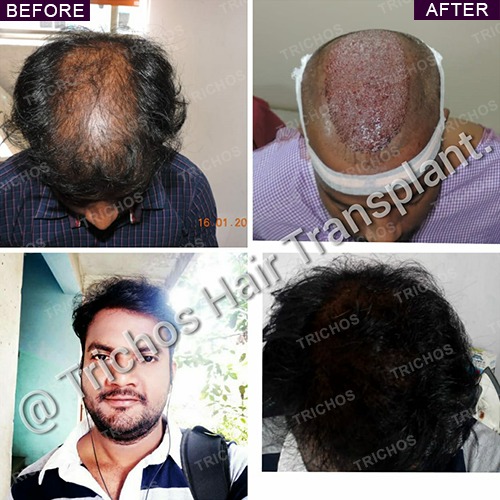Should You Use Minoxidil and Finasteride Singly or in Combination?
This is a common query among many hair loss patients or the general public struggling with hair loss conditions for various reasons when it comes to using the US FDA approved Minoxidil & Finasteride.
Does using Minoxidil or Finasteride individually provide better results? Or should you use them in combination?
Doesn’t the oral drug Finasteride lead to side effects? Is there any alternative? The US-based Concert Pharmaceuticals is developing a drug called CTP-543 that is being touted as a miracle drug for hair growth. What is the truth? Can it control hair loss? Can it help people with genetic baldness?
In this educational video, Dr John Watts – a noted dermatologist, trichologist and hair transplant surgeon in Hyderabad – enlightens viewers of his popular YouTube channel about the above issue. He has successfully performed over 1900+ hair transplant procedures so far.
Introduction:
Both the US FDA approved drugs - Minoxidil & Finasteride – are known to promote hair growth and control hair loss conditions. While Minoxidil is used for topical usage in the form of oil, Finasteride is mostly taken as a drug.
“While the main objective of using Minoxidil is to increase blood supply to the hair loss area to promote growth, Finasteride acts as a DHT blocker to control the impact of androgenetic baldness. It mainly works to stop the release of 5 alpha-reductase enzymes,” explained Dr John Watts.
Combo Research Study: Minoxidil-Finasteride
There was an interesting study done by a team of researchers led by Li Chen to find out if using Minoxidil or Finasteride individually or in combo yields better hair growth and hair loss control clears the queries raised in the introduction of this article.
Titled “The Efficacy and Safety of Finasteride Combined with Topical Minoxidil for Androgenetic Alopecia: A Systematic Review and Meta-analysis”, the team of researchers made three groups of hair loss patients for research.
While one group was solely administered Minoxidil solution, another group was given Finasteride tablet/oral drug and the third group was administered a combination of Minoxidil-Finasteride (not oral drug) topical solution for application on the hair loss areas.
Study: Results
The research group the results/findings of the research study based on four parameters: Hair Density, Hair Diameter, Global Photographic Assessment & Side Effects.
Hair Density: Hair density, defined as the number of hair strands in a square centimetre, was found to be better in the third group who were administered the combo Minoxidil-Finasteride topical application.
Hair Diameter: In this parameter too the third group who were administered the combo Minoxidil-Finasteride topical application showed the best results.
Global Photographic Assessment: In this parameter, the photographs of the participants before and after the study were compared. Here too the third group who were administered the combo Minoxidil-Finasteride topical application showed the best results among the three groups.
Side Effects: In this parameter, the researchers found that the topical solution-based Finasteride which was used in combination with Minoxidil did not show any side effects on the study participants.
“The topical Finasteride was found completely safe unlike what we see with those who take oral Finasteride drug,” informed Dr John Watts, while urging the viewers to share the video among friends confused about the two drugs for awareness.
Trichos provides state-of-the-art treatment for various hair loss conditions and offers advanced hair transplant solutions. Call us Today for a Life-Changing Experience.
Book an appointment for expert guidance


About
Causes
Alopecia
Restoration
Procedures
Locations
Disclaimer: While hair transplants are generally safe and effective, as with any medical procedure, there can be minimal and temporary side effects based on specific or underlying medical condition of the individual patient. Please consult in person with our qualified medical team at Trichos for a thorough assessment of your specific condition and individualized guidance on the potential risks and benefits associated with our hair restoration treatments.
Learn more about Medical Consent for Surgeries.



